
Tour with Expert
Visit Bikaner City Sightseeing Tour Package with
Cheapest Prices!
Cheapest Prices!
Jaipur Tempo Travller is a team of Professional best cab service in Jaipur from drivers who have received proper training is something you can expect from a reputable cab service at any moment you need a ride.
Bikaner, founded in 1488 by Rao Bika, a Rathore prince and the son of Maharaja Rao Jodha (founder of Jodhpur), is a city with a glorious history. It is located in the northwestern part of the Indian state of Rajasthan. The establishment of Bikaner marked the transformation of an arid desert region into a thriving kingdom. Rao Bika's vision led to the establishment of this fortified city, which eventually became a key player in Rajasthan's political and cultural landscape.
The city has been at the center of various historical events. During the Mughal era, Bikaner played an essential role, with its rulers often aligning with the Mughal emperors, especially Akbar. The alliance between the Mughals and Bikaner's rulers allowed the city to flourish under the patronage of the empire. As a result, Bikaner emerged as a significant trading post on the Silk Route, and its strategic location made it an essential stop for caravans traveling between Central Asia and Gujarat.
In the British colonial era, Bikaner maintained semi-independence and was one of the princely states under British rule. Maharaja Ganga Singh of Bikaner was one of the most influential rulers during this period. He modernized the city and developed infrastructure such as the Ganga Canal, which turned the desert land into fertile plains. Bikaner also played a significant role in both World Wars, with its camel corps and military contributions.
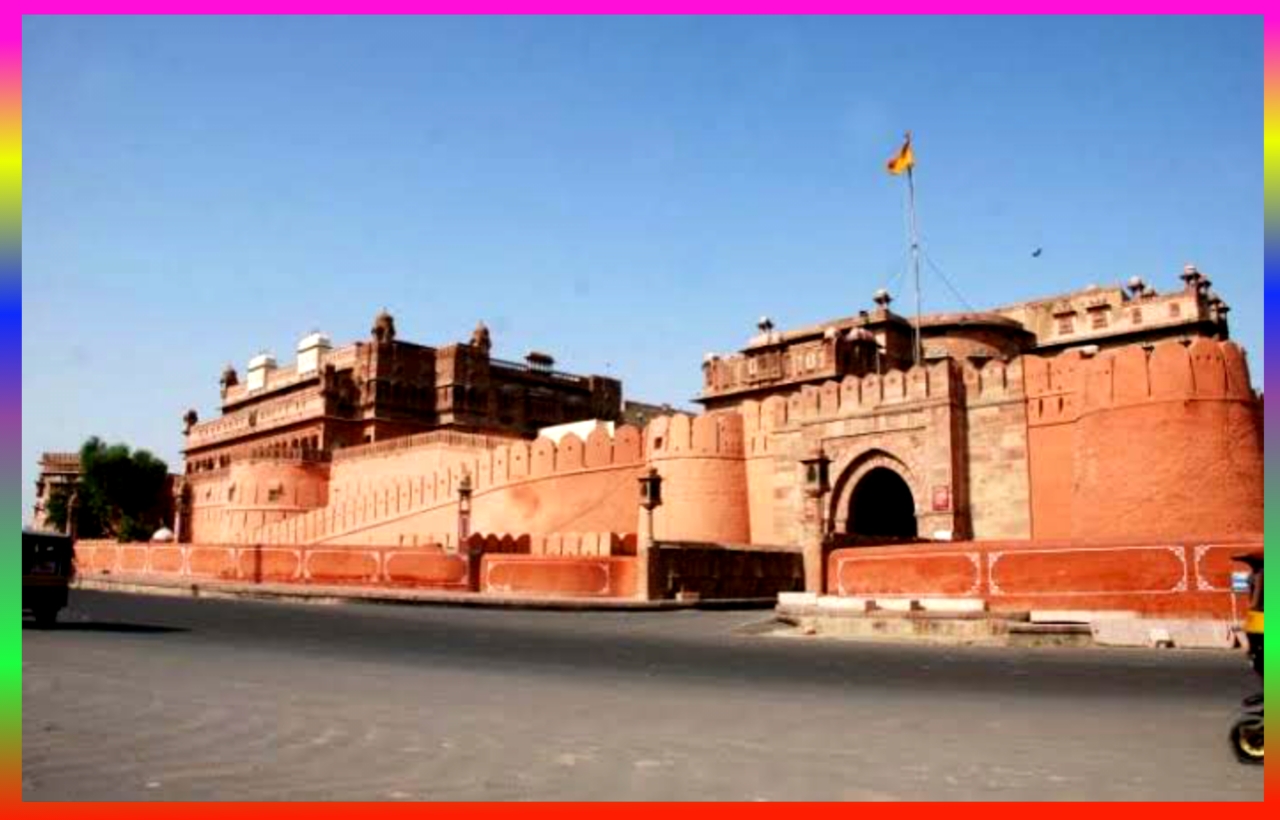
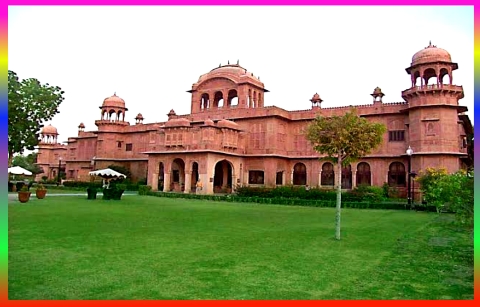
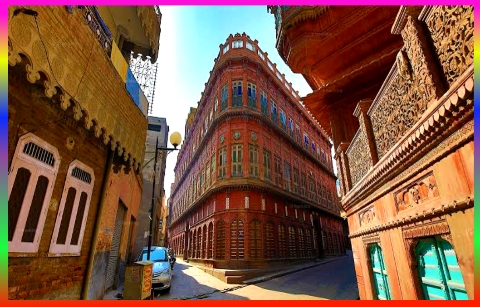
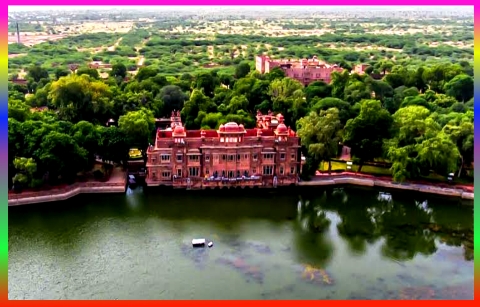
Culture
Bikaner is known for its rich cultural heritage that reflects the essence of Rajasthan’s traditions, art, and craftsmanship. The city's culture is a vibrant blend of Rajput pride, Mughal influences, and traditional desert lifestyle. The people of Bikaner are known for their hospitality, and the city has earned the nickname “Camel Country” due to its long-standing association with camel breeding and camel trading.

 Bikaner.jpg)
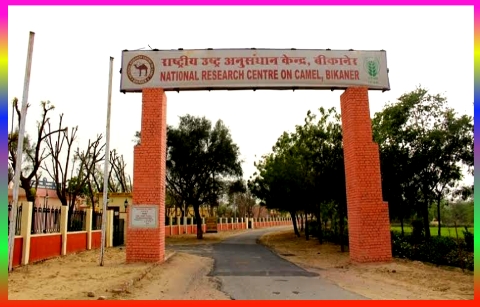
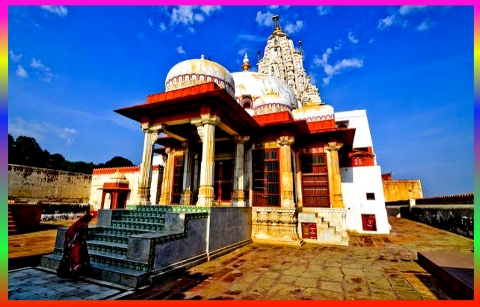
The Junagarh Fort, Laxmi Niwas Palace, and the Karni Mata Temple stand as architectural marvels that capture the essence of the region’s history and culture. Festivals like the Camel Festival, held annually in January, are major attractions in Bikaner, where visitors can witness camel races, performances, and traditional Rajasthani folk dance and music. Local cuisine in Bikaner is another cultural highlight, with delicacies like Bikaneri bhujia, a crispy snack made from gram flour and spices, earning international recognition. Other famous dishes include dal baati churma, gatte ki sabzi, and ker sangri. Bikaner's sweets like rasgulla and rabri are a must-try for visitors. The city also has a strong tradition of handicrafts and textile work, with bandhani (tie-dye) fabrics, kundan jewelry, and intricate lacquer work being popular among tourists.
Sightsseing Places to Visit in Bikaner
Junagarh Fort:
Built in 1594 by Raja Rai Singh, this fort is a massive structure with high walls and a series of palaces, temples, and pavilions inside. Unlike most Rajasthani forts, Junagarh was not built on a hill, but its impressive architecture and elaborate designs make it one of the most well-preserved and unconquered forts in Rajasthan.
The fort complex houses Karan Mahal, Phool Mahal, Anup Mahal, and Chandra Mahal, each showcasing a rich mix of Rajputana and Mughal architecture. The Fort Museum inside the complex displays weapons, paintings, jewelry, and artifacts from the royal era.
Lalgarh Palace:
Built in 1902 by Maharaja Ganga Singh, the Lalgarh Palace is an architectural marvel blending Rajput, Mughal, and European styles. The intricate latticework and beautiful interiors make it a must-visit. A part of the palace has been converted into a heritage hotel, while another section houses the Saraswati Library and Ganga Golden Jubilee Museum, which holds a vast collection of rare manuscripts, photographs, and artworks.
Karni Mata Temple (Deshnoke Temple):
Located around 30 km from Bikaner, the Karni Mata Temple, also known as the Rat Temple, is famous for its thousands of rats that freely roam the temple grounds. It is believed that these rats are holy and are worshipped by devotees. The temple is a unique site and attracts both pilgrims and curious tourists.
Bhandasar Jain Temple:
This temple, dedicated to the 5th Tirthankara Sumatinath, is renowned for its intricate carvings, vibrant frescoes, and beautiful wall paintings. It was built in the 15th century using a foundation of ghee (clarified butter) instead of water, making it an interesting architectural wonder.
Gajner Palace and Gajner Wildlife Sanctuary:
Located on the banks of the Gajner Lake, Gajner Palace was once a royal hunting lodge. Today, it has been converted into a heritage hotel where guests can experience the grandeur of the past. The Gajner Wildlife Sanctuary is nearby and offers a chance to spot animals like nilgai, blackbucks, chinkara, and various bird species.
Camel Breeding Farm:
Bikaner is renowned for its camels, and the National Research Centre on Camel, also known as the Camel Breeding Farm, is a one-of-a-kind facility where you can learn about different camel breeds, enjoy camel rides, and even taste camel milk products. The center is open to visitors and is a popular attraction for those wanting to learn more about the "ship of the desert."
Prachina Museum:
Situated inside the Junagarh Fort complex, Prachina Museum provides a glimpse into the royal lifestyle of Bikaner's rulers. The museum displays royal costumes, textiles, jewelry, and other personal artifacts, reflecting the rich heritage of the city.
Rampuria Havelis:
Bikaner is known for its beautifully carved havelis, and the Rampuria Havelis are the most famous among them. These havelis, built by wealthy merchants, feature elaborate red sandstone facades with intricate carvings, reflecting the grandeur of Rajasthani architecture.
Timings for Visiting Key Attractions
Junagarh Fort: Open daily from 10:00 AM to 4:30 PM. Guided tours are available.
Lalgarh Palace: Open daily, with the museum open from 10:00 AM to 5:00 PM.
Karni Mata Temple: Open daily from 5:00 AM to 10:00 PM.
Bhandasar Jain Temple: Open daily from 5:00 AM to 1:00 PM and 5:00 PM to 8:00 PM.
Gajner Palace and Wildlife Sanctuary: Open daily, but safari timings are generally from 6:00 AM to 6:00 PM.
Camel Breeding Farm: Open daily from 2:30 PM to 5:00 PM.
Prachina Museum: Open daily from 9:00 AM to 5:00 PM.
Rampuria Havelis: Accessible throughout the day, but best viewed during daylight.

Hotels

Sightseeing

Meals

Transfers
Featured tours
| Package Name | Price | Duration | Book |
|---|---|---|---|
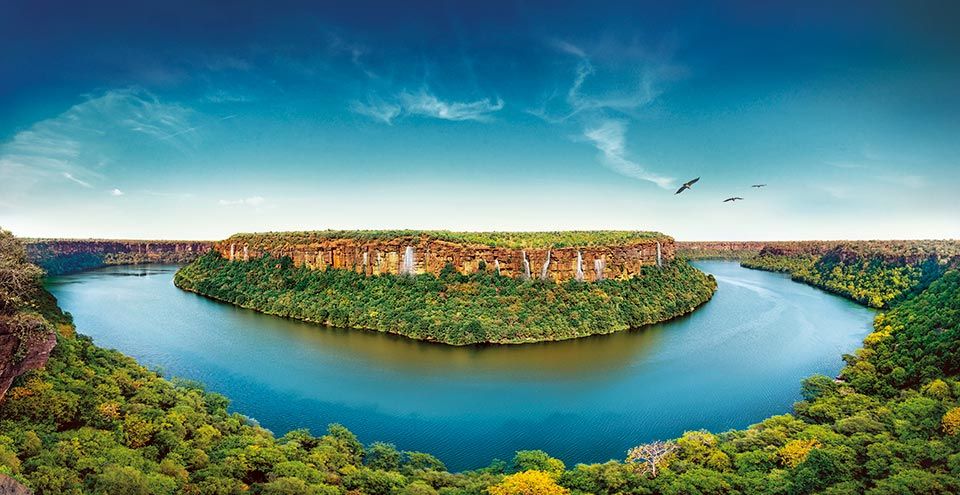 Kota Udaipur Jaipur Tour
Kota Udaipur Jaipur Tour
|
Price On Request | 05 Days / 04 Nights | Call Now |
 Jaipur jodhpur Jaisalmer Tour
Jaipur jodhpur Jaisalmer Tour |
Price On Request | 05 Days / 04 Nights | Call Now |
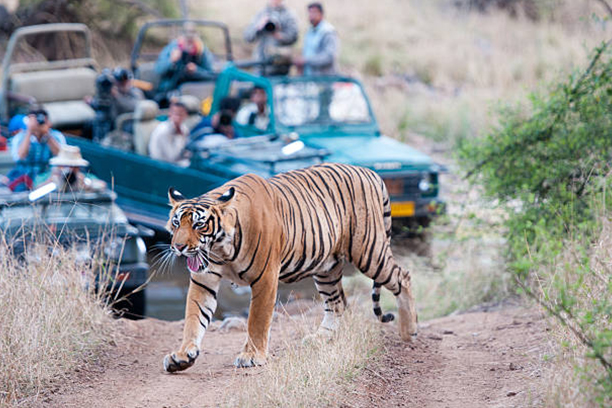 Jaipur Jodhpur Udaipur Tour
Jaipur Jodhpur Udaipur Tour |
Price On Request | 05 Days / 04 Nights | Call Now |
 Royal Rajasthan Tour
Royal Rajasthan Tour |
Price On Request | 07 Days / 06 Nights | Call Now |
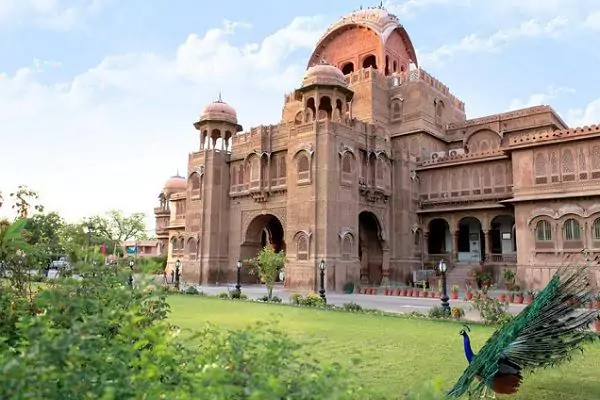 Colorful Rajasthan Tour
Colorful Rajasthan Tour |
Price On Request | 08 Days / 07 Nights | Call Now |
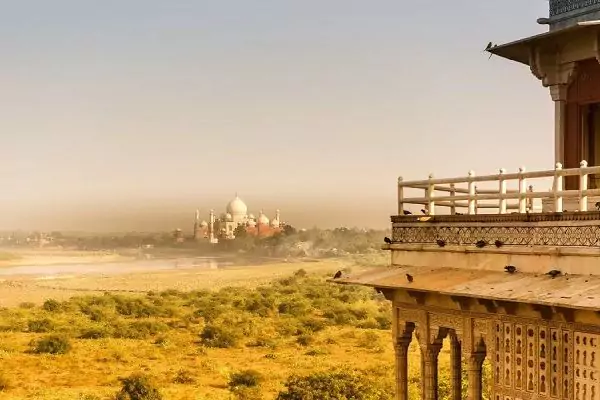 Golden Traingle Tour
Golden Traingle Tour |
Price On Request | 05 Days / 04 Nights | Call Now |
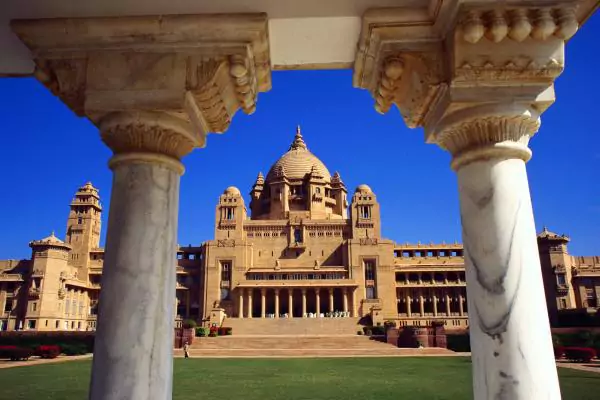 Jodhpur Jaisalmer Tour
Jodhpur Jaisalmer Tour |
Price On Request | 04 Days / 03 Nights | Call Now |
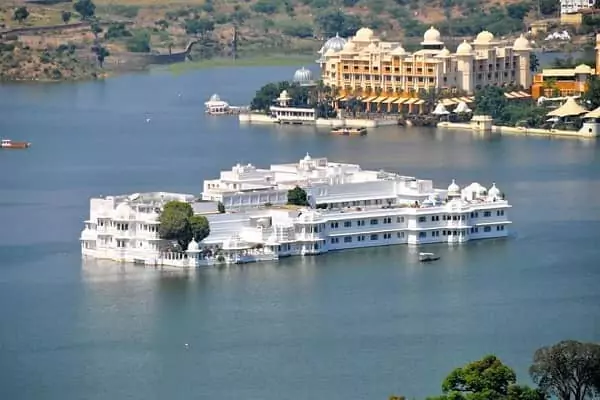 Udaipur Kumbhalgarh Tour
Udaipur Kumbhalgarh Tour |
Price On Request | 03 Days / 02 Nights | Call Now |
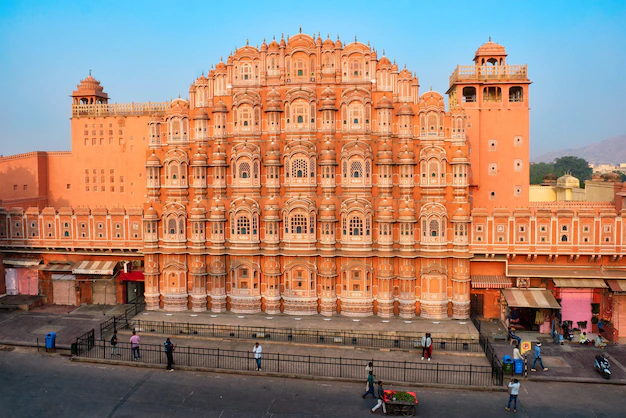 Rajasthan Desert Tour
Rajasthan Desert Tour |
Price On Request | 06 Days / 05 Nights | Call Now |
 Rajasthan Mewar Tour
Rajasthan Mewar Tour |
Price On Request | 07 Days / 06 Nights | Call Now |
 Jaipur Udaipur Tour Jaipur Udaipur Tour |
Price On Request | 04 Days / 03 Nights | Call Now |
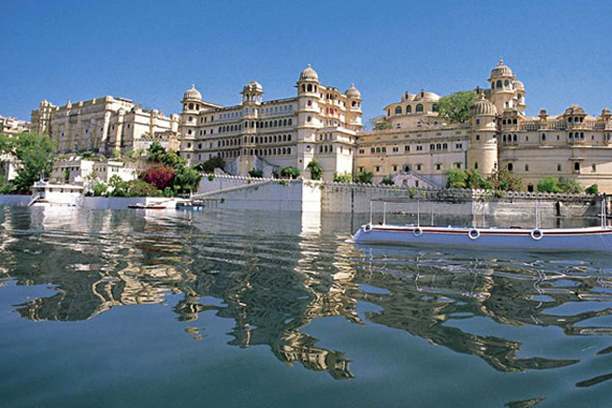 Jaipur Jaisalmer Tour Jaipur Jaisalmer Tour |
Price On Request | 04 Days / 03 Nights | Call Now |
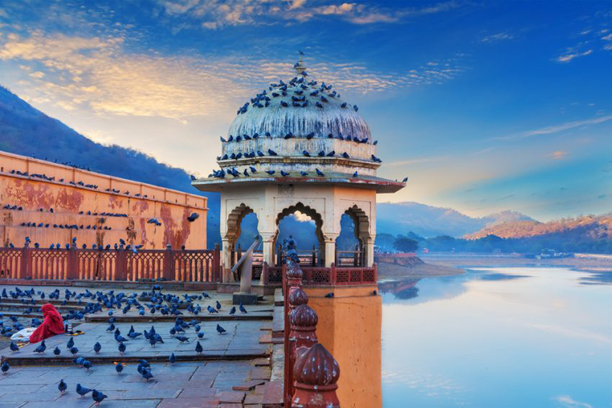 Jaipur Ranthambore Tour Jaipur Ranthambore Tour |
Price On Request | 03 Days / 02 Nights | Call Now |
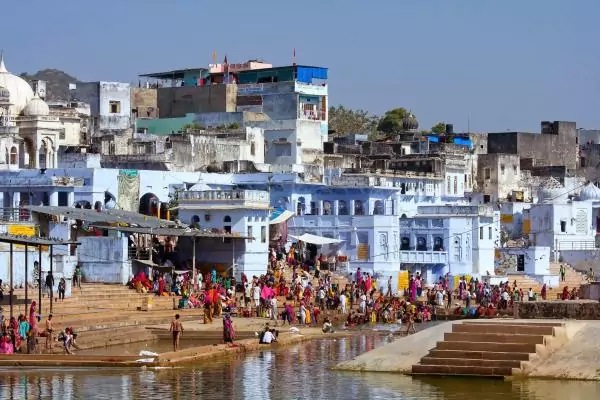 Jaipur Ajmer Pushkar Tour Jaipur Ajmer Pushkar Tour |
Price On Request | 03 Days / 02 Nights | Call Now |
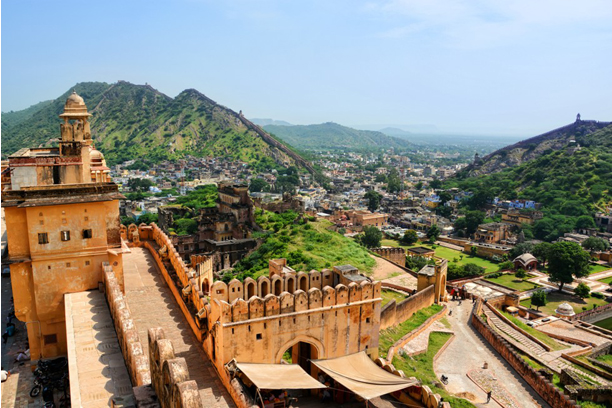 Jaisalmer Tour Package Jaisalmer Tour Package |
Price On Request | 03 Days / 02 Nights | Call Now |
We are just one call away. We provide 24×7 service whatever
be the location and time we are their for you.
Call For Taxi+91 6350167575